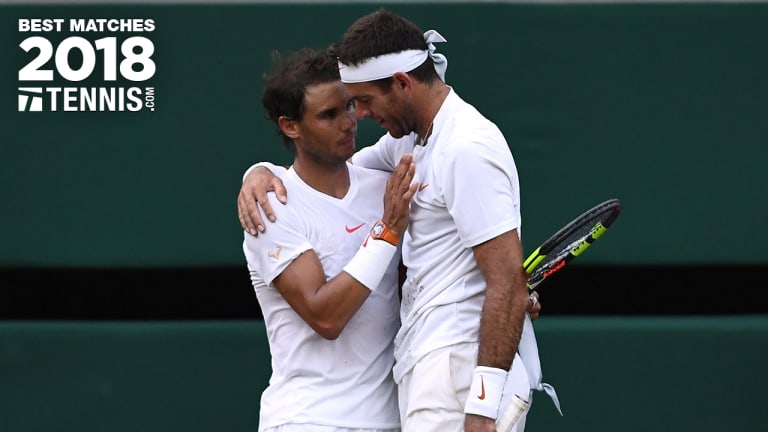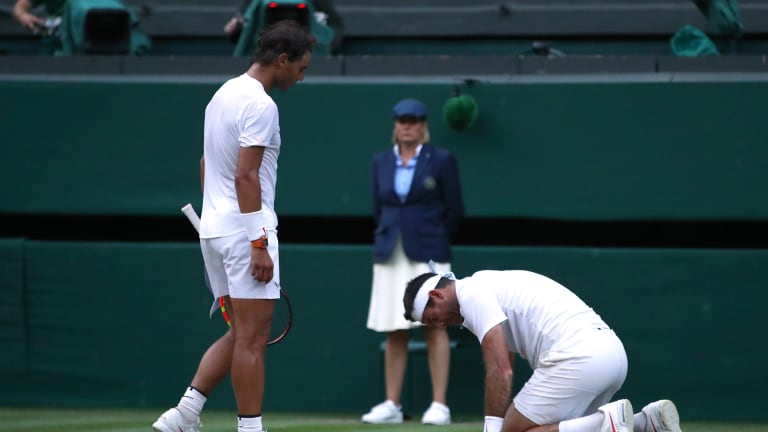Nadal went up a break and served at 4-3, but the question remained: How do you beat Del Potro when he has stopped missing, and virtually every forehand he touches turns into a winner? Rafa never found the answer in Rio, but he did on this day: His forehand drop shot. Over the course of a 15-minute service game at 4-3, Nadal went to the forehand drop time and again. He hit the shot perfectly, but it almost wasn’t enough. Del Potro tracked one down and flipped it for a winner, and he reached break point three times. But Nadal survived.
At 5-4, he survived again. Del Potro torched another forehand winner to reach 30-30—he would hit 77 winners on the day—but against Nadal you can’t just do the spectacular once; you have to do it again. This time Delpo couldn’t. On the final point, with the light starting to die, Nadal tried another unusual tactic; he followed his serve into net. Del Potro, trying to chase down Rafa’s backhand volley, slipped and fell. As the chair umpire called “Game, set match,” he buried his head in the dirt behind the baseline and stayed there. It was a fitting end. Del Potro, showman in victory and defeat, almost seemed to revel in his own heartbreak.
“I wanted to stay there all night long,” he said later.
Instead, when Nadal walked to his side of the court, Delpo stood up. After four hours and 47 minutes—one minute shy of the 2008 final—there was nothing left for them to do but embrace.
“He’s an amazing player, an amazing opponent,” Nadal said. “In some ways he deserves to win this match, too.”
Del Potro, who played spectacularly, deserved to win. But Nadal, who played resourcefully, deserved it just a little more.

